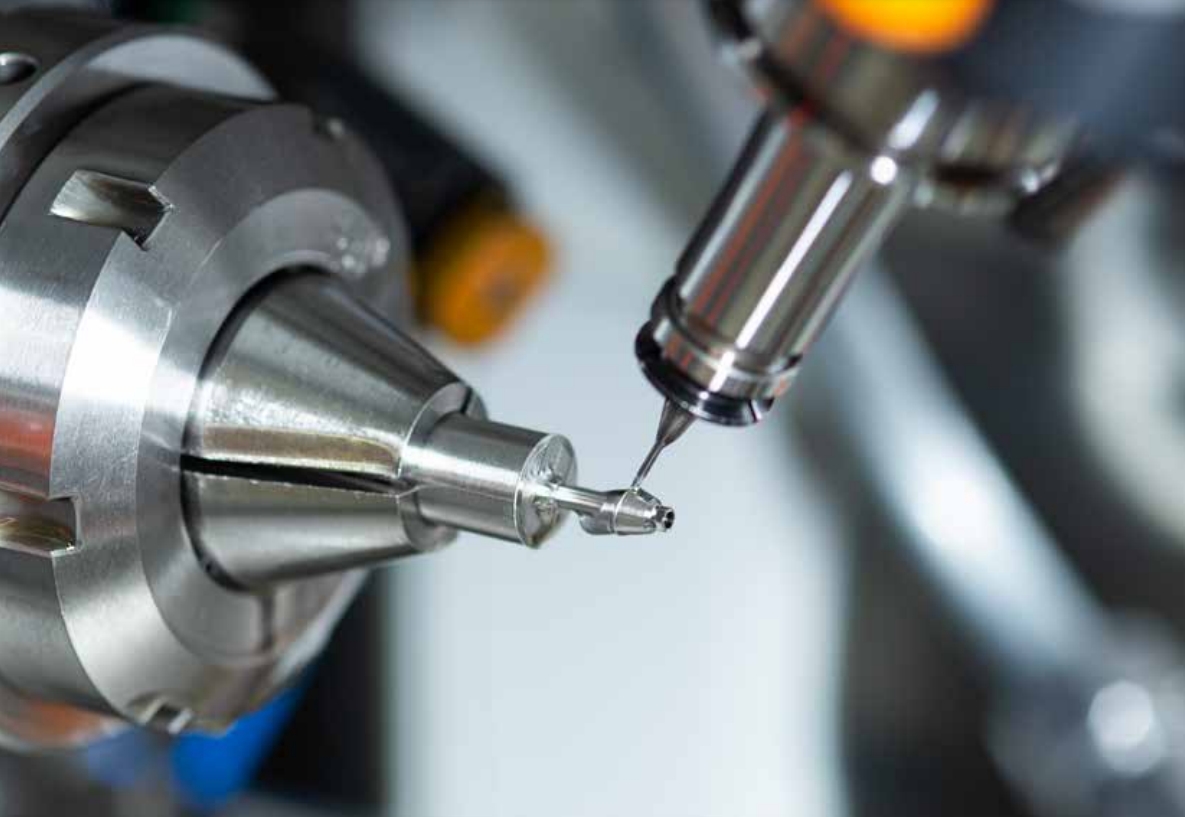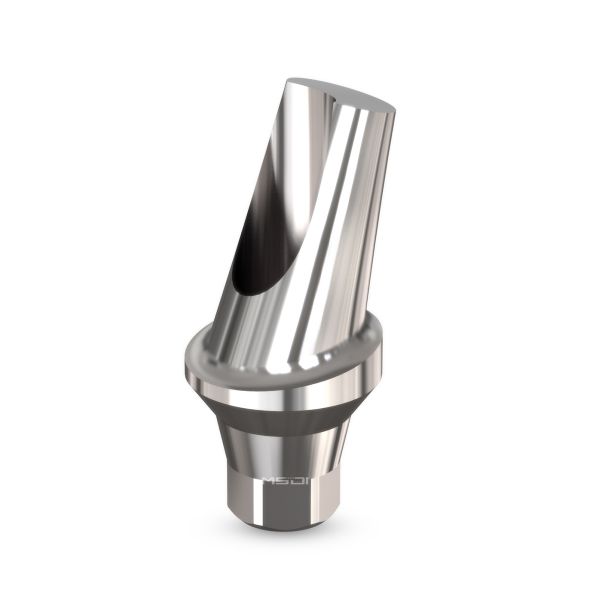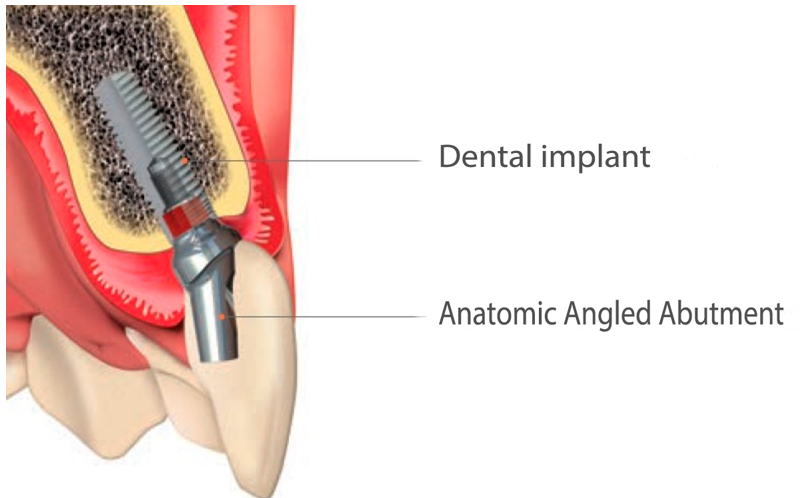The 15° angled abutment in dental implantology helps address complex restorative challenges, providing optimal alignment, functionality, and aesthetics for tilted implants.




The 15° angled abutment is a critical component in dental implantology, designed to address complex restorative challenges where straight abutments may not provide an optimal solution. This abutment is engineered with a precise 15-degree inclination, enabling dental professionals to achieve better alignment and functionality in cases involving tilted implants or anatomical constraints. At Manners Technology, Our state-of-the-art facilities and advanced CNC machining processes ensure that each 15° angled abutment is crafted to perfection. With options for customized designs and material selection, we empower dental professionals to deliver predictable and aesthetically pleasing outcomes.

The 15 degree angled abutment is specifically designed to address complex clinical scenarios where straight abutments are not ideal. Its precise 15-degree inclination makes it a versatile tool for achieving functional and aesthetic outcomes in dental implantology. Below is a detailed exploration of the clinical situations where the 15° angled abutment excels and how its unique design benefits these applications.

In cases where the bone structure is insufficient for perpendicular implant placement, such as in the posterior maxilla or areas with sinus proximity, implants are often inserted at an angle to avoid anatomical limitations. The 15° angled abutment compensates for this inclination, bringing the prosthetic crown into proper alignment with adjacent teeth. This ensures a natural appearance and effective occlusal load distribution, even when the implant itself is tilted.
In the anterior maxilla, achieving a natural emergence profile is critical for aesthetic success. The 15° angled abutment allows the prosthetic crown to emerge from the gingiva at an optimal angle, improving the final restoration's appearance. This is particularly beneficial when the implant is positioned slightly lingually or buccally due to bone or soft tissue constraints.
In full-arch or multi-unit cases, implants are often placed at different angles to maximize stability and utilize available bone. The 15° angled abutment facilitates alignment of the prosthetic framework, ensuring a seamless fit. For example, when anterior implants are placed straight but posterior implants are angled due to bone structure, 15° angled abutments help create a unified prosthetic plane, improving function and aesthetics.
In posterior restorations, where vertical space is limited, the 15° angled abutment is used to reduce the height of the prosthetic assembly. By adjusting the angulation, it allows for a shorter, more compact prosthetic design without compromising strength or aesthetics, making it suitable for challenging posterior restorations.
In cases requiring sinus lifts or ridge augmentation, implants are often inserted at non-ideal angles due to altered bone conditions. The 15 degree angled abutment aligns the prosthetic restoration with the dental arch while accommodating these unique anatomical changes.
Manners’ precision machining technology ensures the accuracy of the 15° angled abutment, which is an important solution to solve anatomical challenges, optimize restoration results and support the long-term success of dental implants.
Producing 15° angled abutments requires advanced manufacturing capabilities to ensure the precise geometry and functionality needed for clinical success. The unique angled design and its role in complex dental restorations introduce specific challenges and technical considerations throughout the manufacturing process.
First, the materials used for angled abutments must meet strict criteria for biocompatibility, strength, and machinability. Titanium and Titanium Alloys, such as Titanium Grade 5 Alloy (TI-6AL-4V ELI), are ideal for abutments under high occlusal forces due to their strength, corrosion resistance, and excellent ability to bond with bone. These materials undergo rigorous pre-machining treatments like annealing or surface conditioning to ensure optimal performance during the machining process.
The production of the angled design, particularly the precise 15° inclination, requires high-precision multi-axis CNC machining. Manners Technology uses advanced equipment such as the Citizen CincomR04VI Swiss-type sliding headstock lathe for this purpose. The machining process involves ensuring the 15° angle is consistently reproduced to ensure proper alignment with both the implant system and the prosthetic framework. Even slight deviations in this angle can compromise the fit and functionality of the final product.
During machining, the screw channel, which runs at the specified 15° angle, also requires exceptional precision. The channel must be aligned perfectly to accommodate fixation screws without compromising the strength of the abutment. Misalignment could result in torque issues or screw loosening, which would affect the long-term stability of the restoration. The internal surfaces of the screw channel are also polished to prevent wear on the screws and to facilitate secure tightening during restoration placement.
Surface treatment plays a crucial role in enhancing the performance and longevity of the 15° angled abutments. For titanium abutments, processes such as anodization or sandblasting are commonly performed to enhance osseointegration and reduce bacterial adhesion. These treatments not only improve the biocompatibility of the abutments but also contribute to their durability, ensuring they perform optimally in the clinical setting over time.
Due to the individual nature of each patient’s anatomy and the varying prosthetic requirements, 15° angled abutments often require tailored designs. Customizations may include different heights and diameters to accommodate diverse gingival heights and implant systems. Adjustable emergence profiles are also frequently required, where custom shaping of the abutment base enhances soft tissue integration and aesthetic outcomes. By addressing the specific needs of angled abutments, Manners Technology has become a trusted partner for clinicians seeking precision-crafted solutions for complex implant cases.